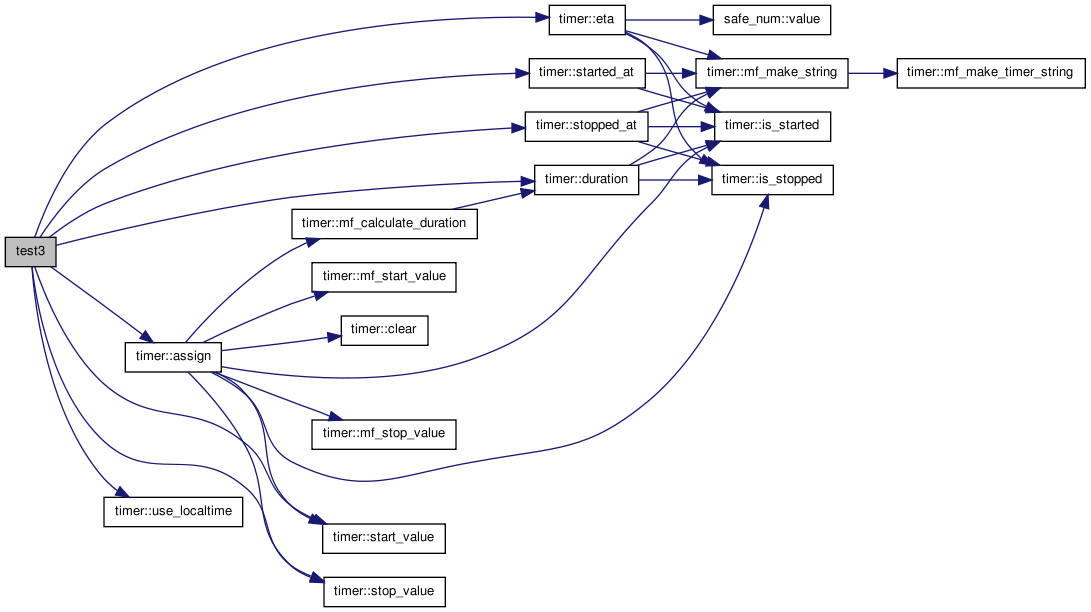#include "config.h"#include <iostream>#include <cassert>#include <unistd.h>#include "asserts.h"#include "error.h"#include "timer.h"
Go to the source code of this file.
Defines | |
| #define | ERR_OUT(s) |
Functions | |
| template<class T > | |
| T | absolute (const T &num) |
| void | test1 (void) |
| void | test2 (void) |
| void | test3 (void) |
| int | main (int argc, char const *argv[]) |
| #define ERR_OUT | ( | s | ) |
Definition at line 15 of file test-timer.cc.
| T absolute | ( | const T & | num | ) | [inline] |
Definition at line 18 of file test-timer.cc.
| int main | ( | int | argc, | |
| char const * | argv[] | |||
| ) |
Definition at line 368 of file test-timer.cc.
References err_unknown, test1(), test2(), and test3().

| void test1 | ( | void | ) |
Definition at line 26 of file test-timer.cc.
References timer::duration(), timer::start(), and timer::stop().

| void test2 | ( | void | ) |
Definition at line 51 of file test-timer.cc.
References absolute(), timer::duration_days(), timer::duration_hours(), timer::duration_mins(), timer::duration_secs(), timer::duration_years(), timer::start(), and timer::stop().

| void test3 | ( | void | ) |
Definition at line 96 of file test-timer.cc.
References timer::assign(), timer::duration(), timer::eta(), timer::start_value(), timer::started_at(), timer::stop_value(), timer::stopped_at(), and timer::use_localtime().

 1.6.1
1.6.1